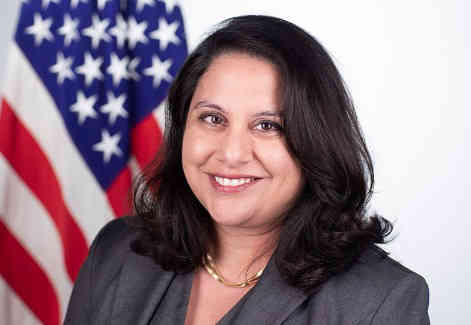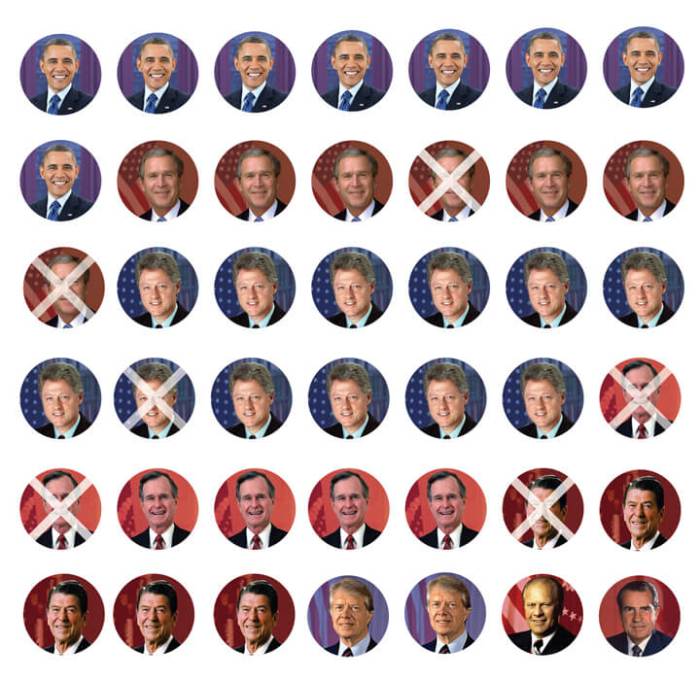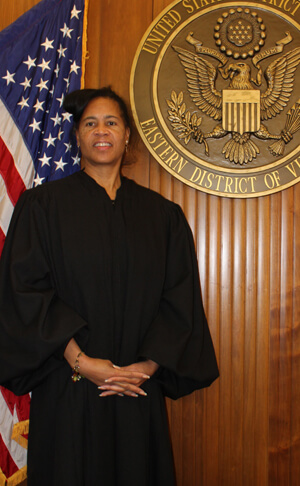US Senator Cory Booker, the New Jersey Democrat, on Tuesday engaged in a tense exchange with DC Court of Appeals nominee Neomi Rao over her views on LGBTQ rights and her history of questioning court rulings that advanced the rights of same-sex couples.
Rao, who was nominated last fall by President Donald Trump to fill the vacancy left by Brett Kavanaugh’s elevation to the Supreme Court and has now been re-nominated for consideration by the new Senate that convened last month, tried to dodge a series of questions asked by Booker during her nomination hearing.
When asked whether she believes gay relationships are immoral, Rao said, “I’m not sure the relevance of that.” Booker proceeded to press Rao on the issue, and she grew noticeably irritated before finally saying, abruptly, “No, I do not.”
The senator then asked Rao if she believes gay relationships are sinful, but she tried her best to sidestep the question without explicitly saying no.
“Senator, my personal views on any of these subjects are things I would put to one side and I would faithfully follow the precedent of the Supreme Court,” she said, referring to Lawrence v. Texas, which wiped out state laws criminalizing same-sex sexual conduct.
Booker, who announced this week he is seeking his party’s presidential nomination, made another attempt to ask her the question, and she said she would not be willing to comment.
The senator moved on to pose questions about about two legal articles Rao wrote over the last decade. He first asked why, in a 2008 piece, she was critical of the Supreme Court’s 2003 ruling in Lawrence.
“You said that the court’s tradition ‘eschews older traditions in favor of an emerging awareness of the meaning and the scope of liberty,’” Booker said. “In your view, should the Supreme Court have been in the business of upholding older traditions, as you said, of laws that criminalize same-sex relationships?”
Rao explained that she was analyzing “dignity and constitutional law” and that she would “of course… faithfully follow” the Lawrence precedent.
Booker also brought up her 2013 article in Virginia Law Review Online in which she was critical of the Supreme Court’s ruling that year in United States v. Windsor, which struck down the federal Defense of Marriage Act.
“You said the court had found ‘a novel constitutional right of two people’s freedom to marry to recognize same-sex marriages.’” Booker said. “And you said that the court’s decision amounted to a political choice, not a judicial choice. What do you believe the Supreme Court’s decision to respect the status of a same-sex marriage, how is that a political choice and not a judicial one?”
Rao said she was trying to make a point in the article to say that Windsor did not recognize same-sex marriage as a right.
“It only recognized the right to have your marriage recognized if the state provided such marriage,” she said. “That later step was taken in Obergefell [v. Hodges in 2015].”
Rao, who currently serves as the administrator of the Office of Information and Regulatory Affairs within the White House Office of Management and Budget, is one of several candidates nominated by Trump who have a history of troubling positions on LGBTQ rights.
Among numerous others are Allison Jones Rushing, who was re-nominated to the Fourth Circuit Court of Appeals on January 23. Rushing publicly criticized the Supreme Court’s ruling in United States v. Windsor and served as a legal intern for Alliance Defending Freedom, a far-right legal group that mounts strong resistance to LGBTQ rights, representing clients including Jack Phillips and his Masterpiece Cakeshop after he refused to serve gay and transgender customers.
The candidacies of Eric E. Murphy and Chad Readler, both re-nominated to the Sixth Circuit Court of Appeals, drew strong opposition from 27 LGBTQ and allied groups who penned a letter to Senate Judiciary Chair Chuck Grassley of Iowa. Murphy served as counsel defending the ban on same-sex marriage in Ohio and then in the consolidation of that case, Obergefell v. Hodges, and ones from Michigan, Kentucky, and Tennessee before the Supreme Court. He once called same-sex marriage “disruptive… to our constitutional democracy,” according to the letter.
Similarly, more than three-dozen advocacy groups blasted Matthew Kacsmaryk, re-nominated to the US District Court for the Northern District of Texas, for his longstanding opposition to a range of LGBTQ rights. He served as deputy co-counsel for First Liberty Institute, a homophobic legal group based in the Dallas-Fort Worth area. According to the advocates’ letter regarding him, Kacsmaryk once suggested trans people are “delusional.”
Kacsmaryk opposed the Equal Employment Opportunity Commission’s view that sexual orientation and gender identity are covered under sex discrimination provisions of Title VII of the 1964 Civil Rights Act, calling it “another step in a decades-long process to remove the pillars of marriage law.”


































